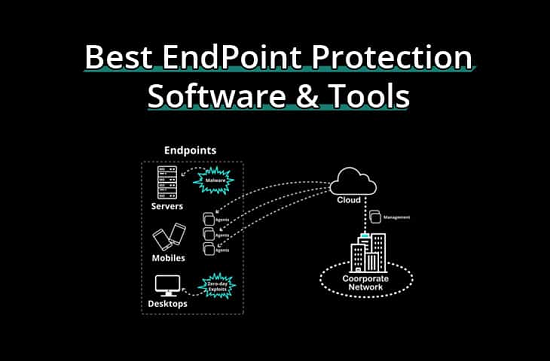BUYER'S GUIDE: ENDPOINT CONTROL SOFTWARE
Cybercriminals' first step in planning for an attack is to choose what kind of mechanism they will exploit. This could be a piece of software, a website, or a networked device.
If you want to make sure these criminals won't be able to put their plans into motion, implementing endpoint security through reliable endpoint control software is a must. This is where you'll be able to lock down any element of your organization to prevent attackers from breaching your databases or servers.
What is Endpoint Control Software?
Endpoint control software helps users monitor devices in a system and ensure their applications are secure and up to date. It is designed to make sure no unauthorized devices are connected to the system.
Some of the most common features of endpoint control software include:
- Asset management
- Patch management
- Compliance evaluation

You can also rely on good endpoint control software to ensure your endpoint devices have up-to-date software that is capable of preventing intrusion.
A dependable endpoint control software would have the following capacities:
- Manage endpoint assets linked to a network
- Take care of patch updates and guarantee device compliance
- Filter out new or suspicious devices
- Install new operating systems or applications to an endpoint device
Remember: endpoint control tools are different from antivirus software. An antivirus tool is designed to oversee a single endpoint device and scan its contents. This is to determine the presence of known malware or other dangerous files.
An endpoint security solution, on the other hand, takes care of your entire organization's network. It runs scans throughout your network's perimeter to look for red flags and single out potential malware.
Key Components of Endpoint Control Software
When looking for the right endpoint solution for your company, you need to look closely at the advantages you will receive. While there are products that claim to offer a complete suite, you need to evaluate whether that particular tool can meet your specific business needs.
Here are some of the main elements for endpoint control software to look for:
- Device protection - the endpoint control software you choose should feature antivirus and malware protection for all your devices, such as desktops, phones, tablets, etc.
- Network controls - the tools should function like a robust firewall that sorts through all incoming traffic and detects potential risks.
- Application controls - involves how the software integrates with application servers to observe and limit the kind of endpoint access they have.
- Data controls - includes endpoint control software tools that help fend off data exploitation and improve data security with encryption of confidential information.
- Browser protections - the inclusion of a web filter option for you to choose what types of sites your users are able to access while connected to the network.
How to Choose the Right Endpoint Control Software?
Choosing the best endpoint protection solution calls for a thorough evaluation of your IT operations and user productivity goals.
Endpoint control software to help you with just that and ensure the product you go with is aligned with your business goals, here are some requirements to keep in mind:
1. Boost End-User Productivity
Today's digital landscape requires many of us to have convenient access to all our personal and business data. This can be considered a rather expensive exercise for IT help desks so your endpoint control software must offer self-service capabilities. These self-service features may include access and recovery to content file sharing.
2. Optimize Resources
The endpoint control tool you'll be using should not be a hindrance to operational or user performance. Go with a solution that will optimize your resources through features, such as CPU and power utilization, as well as global deduplication.
3. Automate System Discovery
If you're implementing a bring-your-own-device (BYOD) program in your organization, then you already know your network is built with a wide range of endpoint devices. Keeping track of all of these devices can be a taxing operation so your endpoint control tool should have the capacity to auto-discover newly connected devices and perform an automatic installation of backup agents.
4. Enable Deployment Flexibility
Deployment flexibility is a must if you're looking to efficiently implement on-premises, in the cloud, hybrid cloud, or Software as a Service solution.
5. Streamline Administrative Processes
Choose an endpoint control software that unites your current application and data protection requirements. This can help reduce administrative time and cost, which can have a huge positive impact on your IT operations. This also eliminates the need for separate point solutions and multiple management consoles just to protect and manage your device applications and server data.
Endpoint data protection is the key to safeguarding your critical company information through a comprehensive data management solution. This is why you need to be careful when looking for the right endpoint control software to use.
Xcitium endpoint control software offers a wide range of cybersecurity services that can protect your organization from a number of cyber threats. From threat assessment services to managed services, we're sure to find the right security solution you're looking for.
